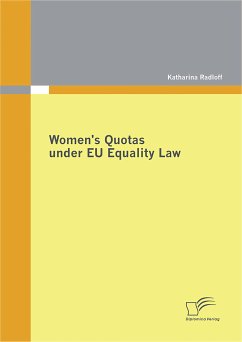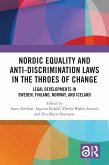The purpose of this study is to investigate legislation and leading cases concerning positive discrimination in the European Union, with a particular focus on the recent debate about the most radical positive action measure: the implementation of women's quotas by supranational legislation. This study seeks to answer the question if such a radical derogation from the equal treatment principle can be tolerated, keeping in mind the fundamental character of this principle in European law. The concept of substantive equality will be analysed and set against the ECJ case law under review. It will be criticised that the ECJ focused once more on a formalist approach and allows for positive action measures only to a very limited extent. If the European Union would impose women's quotas for board members via supranational legislation, would this still be considered as a measure of positive discrimination or would it rather be a form of negative discrimination against men?
Dieser Download kann aus rechtlichen Gründen nur mit Rechnungsadresse in A, B, BG, CY, CZ, D, DK, EW, E, FIN, F, GR, HR, H, IRL, I, LT, L, LR, M, NL, PL, P, R, S, SLO, SK ausgeliefert werden.









